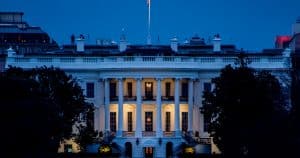Legal scholars suggest Jack Smith's special counsel appointment unconstitutional
Special counsel Jack Smith's pursuit of former President Donald Trump in both the classified documents case in Florida and the Jan. 6-related case in Washington, D.C. has been relentless, but according to some legal scholars, he may never have had the requisite authority to initiate either matter.
As the Epoch Times explains, former Attorney General Ed Meese, together with a pair of law professors, now argue that Smith's appointment to the position he now holds was unconstitutional from the very start.
Amicus brief tells all
It was late last year that Meese, together with Gary Lawson and Steven Calabresi, filed an amicus brief with the U.S. Supreme Court contending that Attorney General Merrick Garland's decision to tap Smith for the special counsel role runs counter to the Constitution's Appointments Clause, and is therefore invalid.
As such, the trio asserts, any arguments made by Smith regarding his cases against Trump need not even be entertained by the justices.
The brief at issue was penned in the aftermath of Smith's request for expedited treatment of Trump's immunity claim in his election interference case – a plea that was ultimately denied.
According to the authors of the submission, given his status as a private citizen and not an official inside the government, Smith was never eligible for appointment to the role for which he was tapped by Garland.
The men make their case with no-nonsense phrasing, saying at one point, “Not clothed in the authority of the federal government, Smith is a modern example of the naked emperor.”
No authority
As Fox News noted at the time of its filing, the brief goes on to declare, “Improperly appointed, [Smith] has no more authority to represent the United States in this Court than Bryce Harper, Taylor Smith, or Jeff Bezos.”
Meese and his colleagues conceded that Garland had made attempts to reference statutory authority to justify Smith's appointment, but contended that “none of those statutes, nor any other statutory or constitutional provisions, remotely authorized the appointment by the Attorney General of a private citizen to receive extraordinary criminal law enforcement power under the title of Special Counsel.”
The brief did not stop there, adding, “Second, even if one overlooks the absence of statutory authority for the position, there is no statute specifically authorizing the Attorney General, rather than the President by and with the advice and consent of the Senate, to appoint such a Special Counsel.”
“Under the Appointments Clause, inferior officers can be appointed by department heads only if Congress so directs by statute...and so directs specifically enough to overcome a clear-statement presumption in favor of presidential and senatorial confirmation,” the attorneys went on.
Meese and company concluded that “the Special Counsel, if a valid officer, is a superior (or principal) rather than inferior officer, and thus cannot be appointed by any means other than presidential appointment and senatorial confirmation regardless of what any statutes purport to say,” and if their arguments gain traction, the entire trajectory of Smith's crusade against Trump could be irretrievably altered.




